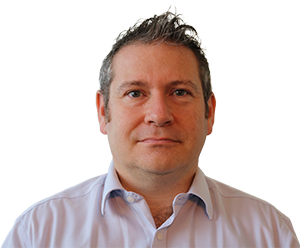More NHS temporary hospitals are to be opened across England, Wales and Scotland to cope with the coronavirus outbreak.
The new hospitals will treat patients in makeshift critical care units as the UK braces for the peak of the pandemic.
"The NHS is mobilising like never before, but the scale of this challenge has not been seen in peacetime"
Ruth May
A temporary hospital based in Birmingham’s NEC, an exhibition space that usually hosts conferences, will begin with 500 critical care beds with the capacity to expand to up to 2,000 if required.
Another hospital will be in Manchester’s Central Complex, a convention centre, which will at first provide 500 beds but can increase to 1,000 to treat patients in the North of England.
Today Scotland’s first minister Nicola Sturgeon confirmed that the SEC Centre in Glasgow will also become a temporary hospital to treat Covid-19 patients.
It will provide NHS Scotland with an additional 300 beds, with the capacity to be expanded to house more than 1,000 patients.
The Principality Stadium in Cardiff, the Welsh national football and rugby stadium, is planned to be turned into a 2,000-bed temporary field hospital.
The Cardiff and Vale University Health Board has confirmed that efforts had begun to adapt the arena.
Meanwhile, the ExCel Centre in East London is in the process of being turned into the NHS Nightingale coronavirus field hospital.
Due to open this week, the temporary hospital will eventually have capacity for 4,000 critical care patients.
Staff and volunteers at the new hospitals in England will be offered free accommodation with breakfast provided and either lunch or dinner depending on their shift hours.
To strengthen the emergency workforce tending to these services, flight attendants from easyJet and Virgin Atlantic have been enlisted.
EasyJet has written to 9,000 UK-based staff, 4,000 of which are trained in CPR, and Virgin Atlantic plans to contact 4,000 employees from today.
Both airlines will prioritise staff with the required skills and training and all volunteers manning the makeshift hospitals will be monitored by nurses and senior clinicians.
Ruth May, chief nursing officer for England, said: “The NHS is mobilising like never before, but the scale of this challenge has not been seen in peacetime so we need all the support we can get.
“Thousands of nurses, medics and other expert staff are returning to work alongside us, but we need everyone to do their bit - whether that is working in one of our current health or social care services, working in the Nightingale Hospital, volunteering to help the NHS or following government advice to stay at home, protect the NHS and save lives.”
"These are extraordinary steps the NHS is taking, and clinicians, managers and military planners are working day and night"
Sir Simon Stevens
Director of cabin services for easyJet, Tina Milton, said its staff could “help make a real difference” to the effort to tackle the coronavirus outbreak.
The airline volunteers will be performing support roles, such as changing beds, and will continue to be paid by their employers.
St John Ambulance will be supplying up to 200 first aiders per day to work at the London site from Wednesday.
More than 750 volunteers have signed up to help at the new hospital and they will undergo a selection process and receive further training.
The charity’s chief operating officer, Richard Lee, said they will “stop at nothing” to defeat the virus.
NHS England chief executive, Sir Simon Stevens, announced the two new hospitals and confirmed that the NHS had now freed up the 33,000 beds needed to meet the heavy demand of Covid-19.
Sir Simon said the NHS was “mobilising like never before”.
“These are extraordinary steps the NHS is taking, and clinicians, managers and military planners are working day and night to create, equip and staff these hospitals from scratch and prepare for the surge that is likely to be coming.
“While we continue to pull out all the stops, we do need the public to play their part.”
Scotland's first minister Nicola Sturgeon said: "There are currently approximately 13,000 beds in NHS hospitals across Scotland and health boards are working to ensure we have capacity of at least 3,000 available for Covid-19 patients.
"They are also quadrupling intensive care unit capacity to 700. We expect this to provide sufficient treatment capacity to meet the rise in demand.
"I hope this facility will not be needed as, alongside the public’s contributed efforts to stay at home and the steps we are already taking to increase the number of NHS beds, we should have the beds we need."
So far over 18,000 former NHS staff have returned to practice to help fight the virus – 7,000 of which are nurses.
 Nursing Times Resources for the nursing profession
Nursing Times Resources for the nursing profession 

Have your say
or a new account to join the discussion.